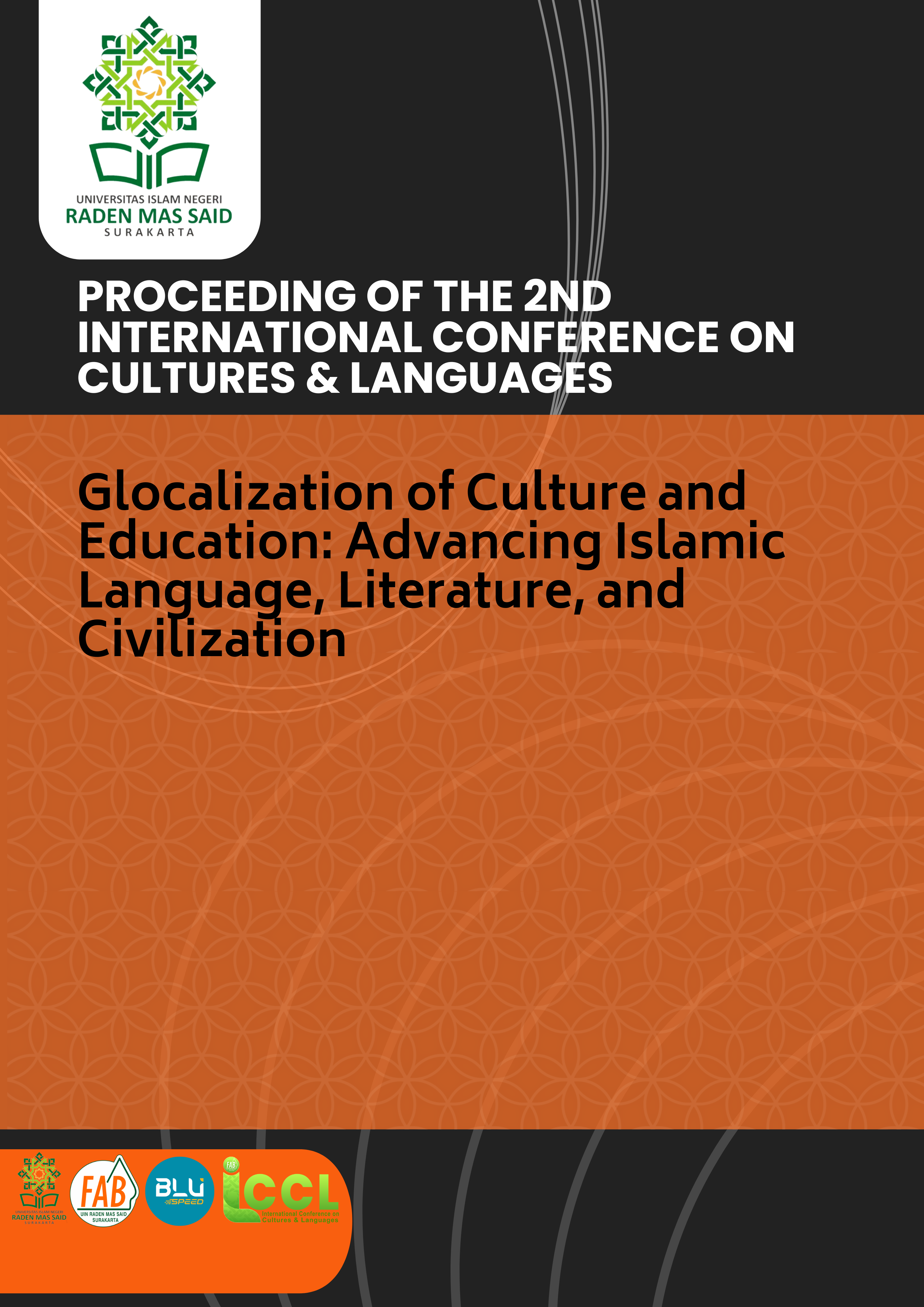THE EPISTEMOLOGY OF RELIGIOUS MODERATION IN JAVANESE LITERATURE (REVISITING THE MORAL GUIDELINES OF JAVANESE SOCIETY IN SERAT WULANGREH)
DOI:
https://doi.org/10.22515/iccl.v2i1.9580Keywords:
Epistemology, Moderation, Religion, WulangrehAbstract
This paper explores the intricate interweaving of reflections on the concept of moderation today in the rich tapestry of Javanese literature, especially through a nuanced exploration of the epistemological foundations present in Serat Wulangreh created by Pakubuwana IV. In its time, Serat Wulangreh consisting of 13 Pupuh was a guideline for moderation in Javanese society, especially Surakarta Sunanate. According to Peorbatjaraka, a literary expert of the Dutch East Indies era, the values in Serat Wulang Reh were widely applied by the Surakarta community as a guide to life. Thus, the assumption that Indonesians are only consumers of external values is certainly not true. Indonesia has always been a producer of values, one of which is the concept of religious moderation that should be introduced to the world. Using a multidisciplinary approach that combines epistemology and literary studies, this research re-evaluates the moral guidelines inherent in Indonesian society, especially Java, as depicted in this important work. Through an analysis of the religious principles and ethical frameworks embedded in the text, the study aims to elucidate the essence of moderation in the Javanese cultural and religious ethos as well as underscore its relevance and applicability in the context of contemporary society. This research found that the idea of moderation value that is initiated now is not substantially new. The existing value of religious moderation is a reflection of the noble values of the Indonesian nation, one of which is contained in Serat Wulangreh. The existence of Serat Wulang Reh confirms that the nation's original framework of norms and values will remain even though it will dialogue with other values from outside.


